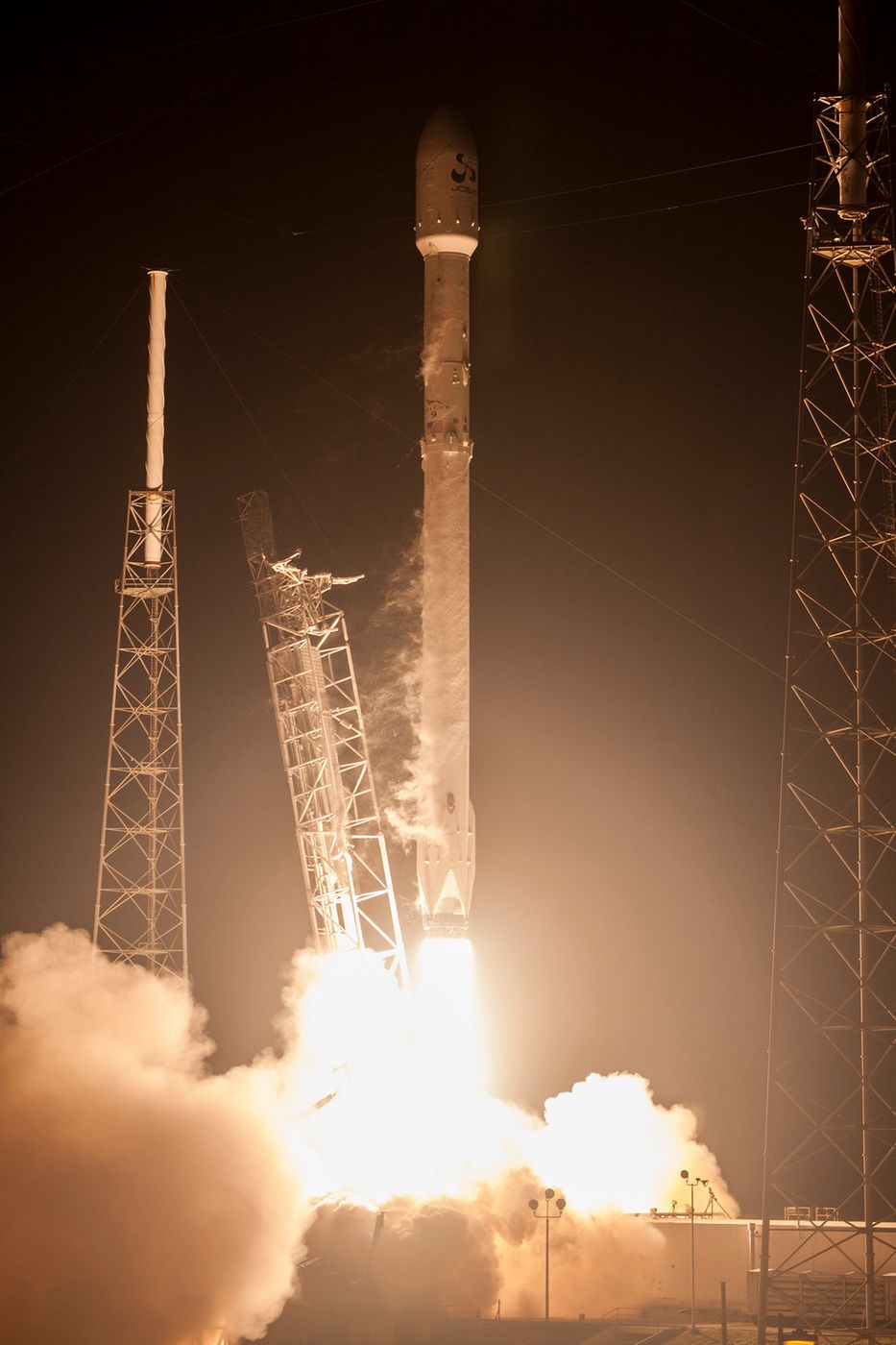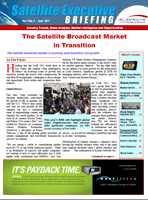Spacex Successfully Launches JCSAT -14 Satellite
 Cape Canaveral, Fla., May 6, 2016—Spacex’ Falcon 9 rocket successfully launched JCSAT-14, a commercial communications satellite for SKY Perfect JSAT Corporation, to a Geostationary Transfer Orbit (GTO) earlier today at Cape Canaveral Air Force Station, Florida. Friday's mission began at 1:21 a.m. EDT (GMT-4) and delivered the satellite into its orbit after a 32-minute flight.
Cape Canaveral, Fla., May 6, 2016—Spacex’ Falcon 9 rocket successfully launched JCSAT-14, a commercial communications satellite for SKY Perfect JSAT Corporation, to a Geostationary Transfer Orbit (GTO) earlier today at Cape Canaveral Air Force Station, Florida. Friday's mission began at 1:21 a.m. EDT (GMT-4) and delivered the satellite into its orbit after a 32-minute flight.
After the succesful launch, the Falcon 9 rocket was succcesfully landed on a ship i nthe ocean--the second time that Spacex manage to stick a landing after a launch.
The first-stage was subjected to extreme velocities and re-entry heating, making a successful landing unlikely; however the JCSAT-14 relay station was successfully delivered to the preliminary orbit, and also carried out an experimental landing on the “Of Course I Still Love You” Droneship.
Equipped with 18 Ku-band and 26 C-band transponders, JSCAT-14 will be replacing the JSCAT-2A stationed at 154 degrees East longitude, expecting to last 15 years in orbit.
SpaceX’s launch was the fourth of many flights arranged for 2016, as four more flights are planned in the next month and a half: one science satellite and a resupply launch scheduled towards the end of June at Vandenberg Air Force Base, Calif, and two commercial satellites in Cape Canaveral.
"Our launch rate is going to continue to grow," SpaceX founder Elon Musk stated after the April space station resupply launch. "We're expecting by maybe the third or fourth quarter that we would be,” he added.
In December, Spacex’ Falcon 9 marked the first soft touchdown ever achieved during an orbital liftoff and for the second time in this month, stuck its landing on a ship stationed about 200 miles (320 kilometers) offshore in the Atlantic Ocean. Landing a rocket safely on a ship would mean that it could be re-used for a future launch, making the cost of satellite launches more economical in the future.
SpaceX's effort to develop launch systems that are completely and rapidly reusable — and could cut the cost of spaceflight by a factor of 100. Such price reductions could revolutionize spaceflight, making Mars colonization economically feasible, according to Musk.
Other company’s such as Blue Origin, led by Amazon.com founder Jeff Bezos, launched and landed its New Shepard rocket three separate times, but were achieved during suborbital test flights rather than orbital launches.





